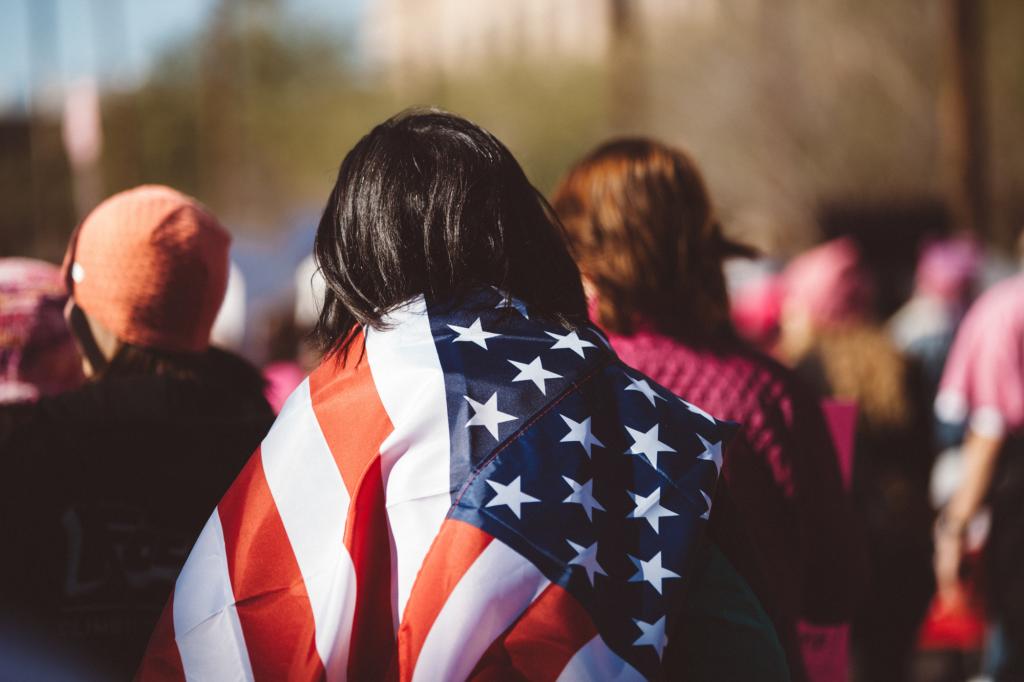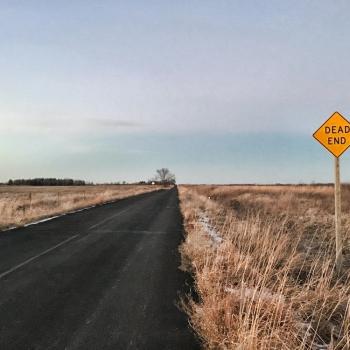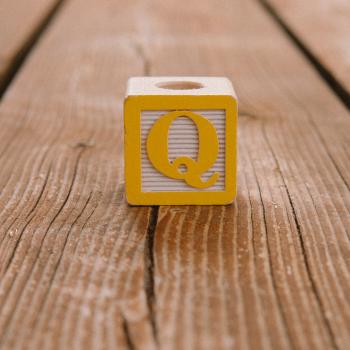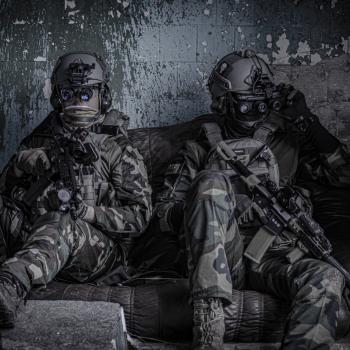
The evidence is in. The United States can finally abandon the pretense that it is a Christian nation. For most of us, this isn’t news. Since its inception, America has demonstrated many of the same strengths and character flaws as other colonial western nations.
But if COVID-19 has done anything, it’s revealed that the U.S. brand of Christianity doesn’t look anything like Jesus.
Take up your cross
There’s a point in the gospels when Jesus reveals he’s going to die. Peter promptly rebukes him. After all, Jesus can’t die. They’ve put all their hope in him as the Messiah and they expect him to deliver them from Roman oppression.
Jesus tells Peter to can it, but then follows it up with these words, “Whoever wants to be my disciple must deny themselves and take up their cross and follow me. For whoever wants to save their life will lose it, but whoever loses their life for me will find it” (Matt. 16:24–25).
Christians sum up Jesus’ words here with the phrase “dying to self.” They love the term and use it often. But for the most part, it’s a poetic abstraction, a form of spiritual idealism. It’s a difficult conviction to hold when your cultural ethos focuses on your individual right to pursue happiness.
In the Incarnation, Jesus laid aside his deity to identify with humanity (Philippians 2). And at Calvary, he laid down his human life to make reconciliation possible. In both actions—laying aside his deity and taking up his cross—he renounced his rights.
In a culture and economy that operates on consumption and acquisition, it’s difficult to convince Christians to renounce anything. In fact, quite often when American Christians are asked to give up something for the sake of others, it’s interpreted as persecution.
One doesn’t have to search hard for stories about churches who continued to meet against the recommendation of authorities, even when it put people at risk.
Don’t tread on me
Christianity in America is so entangled with patriotism and exceptionalism. When asked to shelter in place, Christians don’t think it’s odd to deck themselves out in G.I. Joe cosplay complete with AR-15s to storm a government building and demand their rights.
But at the same time, they’re unflinching in their support of authority being misused against others.
When an unarmed black man or woman is shot and killed on camera, they instantly make excuses on behalf of authorities. That can look like trotting out an old mugshot to prove that person’s terrible character, or simply pointing out that they got themselves killed by not being obedient enough.
But when asked to stay home, patriots have no problem grabbing their guns and defying orders. The mixture of Christianity and Americanism is a troubling tincture, enabling people to cite Romans 13 to get others to obey authority while they stock up weapons to fight off a potentially tyrannical government.
Any religion that demands that others take up their cross while we take up our sword is not Christianity.
Failing the mask test
It’s strange, but nothing reveals the rot at the center of American Christianity like the response people have had to wearing masks. It requires zero sacrifice to put a mask on—but that’s still too much of an ask for many Americans.
Mask wearing is really the perfect litmus test for self-denial. It’s something we do for others. My mask protects you, and your mask protects me. It’s not only a legitimate way to stop the spread of germs, but it also communicates our care for others.
So when a store like Costco or Trader Joe’s refuses to allow someone in without a mask, it’s to protect their employees (who aren’t getting paid what they deserve) and other shoppers. They’re asking people to take the health of others seriously. Because the choice not to wear a mask doesn’t communicate that you’re OK with getting sick; it communicates that you’re OK with getting others sick.
It’s such a low bar for denying one’s self. And yet, there are people all over the country who refuse this small act of solidarity. Their discomfort and inconvenience is too big of an ask.
Following Jesus requires sacrifice
Jesus asked us to take up our cross and follow him. Following him looks like self-sacrifice. He is our model and we are his followers insofar as we follow him.
I can imagine many American Christians reading this and saying, “Jesus chose to make a sacrifice. I’m being expected to. I should have the freedom to choose how to carry my cross.”
Let’s not forget that Jesus suffered the indignity of an unfair trial in a kangaroo court. The Sanhedrin was looking for any excuse to kill him. His life was taken from him. His attitude of self-sacrifice was a preparation for a final act of genuine sacrifice he was prepared to make–but it wasn’t like he walked into Pilate’s office, slammed three nails on the desk, and asked to be crucified.
He was ready for the ultimate sacrifice, but he didn’t want it. He prayed for God to spare him this fate (Matthew 26:38-40).
Following his example, every one of the disciples stoically endured horrible treatment from officials and their countrymen. But they had renounced the expectation to be treated fairly. They didn’t take up swords and demand their rights. They modeled themselves after their king.
American Christianity makes salvation a personal commodity. It’s something you acquire through invocation–say the right prayer and you’re in. It places certain social and moral expectations on us, but it doesn’t infringe upon our liberty. No one can place expectations upon us. It’s an insurance policy we purchase that allows us to pursue the American dream without fear of our eternal future.
We like to identify ourselves as a Christian nation, a city on a hill. But think about it a minute. What is it that separates America from every other nation on earth? We’ve become an epicenter for a disease that has killed more than 80,000 of our fellow citizens. And we’re the only country that would rather go to war with our local government to protect our individual freedom than make sacrifices for the greater good.
It’s taken a pandemic to see the gulf between historic Christianity and its American counterpart. All it took was an expectation of community responsibility to tear off the mask and reveal its true face.












